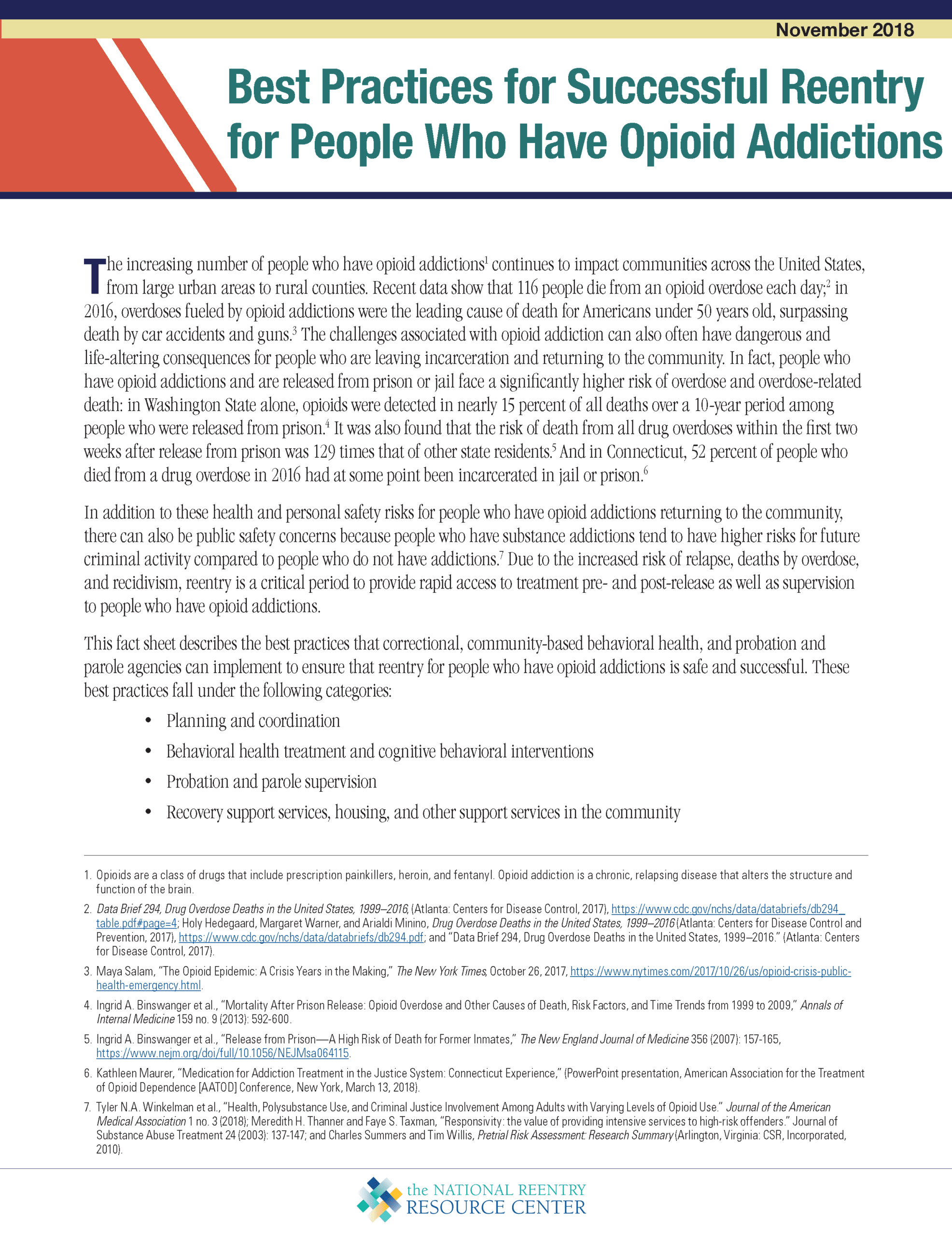Best Practices for Successful Reentry for People Who Have Opioid Addictions
This fact sheet from the National Reentry Resource Center describes the best practices that correctional, community-based behavioral health, and probation and parole agencies can implement within their systems to ensure reentry for people who have opioid addictions is safe and successful.
People who are leaving incarceration face a significantly higher risk of relapse, overdose, and overdose-related death than people in the general public. Because of these odds, reentry is a critical time to provide rapid access to pre- and post-release treatment as well as informed supervision to people who have opioid addictions. This fact sheet from the National Reentry Resource Center describes the best practices that correctional, community-based behavioral health, and probation and parole agencies can implement within their systems to ensure reentry for people who have opioid addictions is safe and successful.
The fact sheet provides an overview of 10 ways the professionals in these agencies can help to ensure success, which fall under the following categories: planning and coordination, behavioral health treatment and cognitive behavioral interventions, probation and parole supervision, and recovery support services.
 New Hampshire Continues Justice Reinvestment Effort to Improve Conditions for People Who Are High Utilizers of Criminal Justice and Behavioral Health Systems
Read More
New Hampshire Continues Justice Reinvestment Effort to Improve Conditions for People Who Are High Utilizers of Criminal Justice and Behavioral Health Systems
Read More
 New Hampshire Commission Reviews Final Policy Recommendations to Reduce Reliance on Incarceration as Part of Justice Reinvestment Initiative
Read More
New Hampshire Commission Reviews Final Policy Recommendations to Reduce Reliance on Incarceration as Part of Justice Reinvestment Initiative
Read More
 Three Things to Know About New Jersey’s Groundbreaking Community Response Legislation
Three Things to Know About New Jersey’s Groundbreaking Community Response Legislation
In response to growing calls for police reform in New Jersey, particularly following the shootings of Najee Seabrooks and Andrew Washington in March and August 2023, a coalition of law enforcement officials, mental health professionals, and community advocates partnered to explore public safety response alternatives.
Read More













